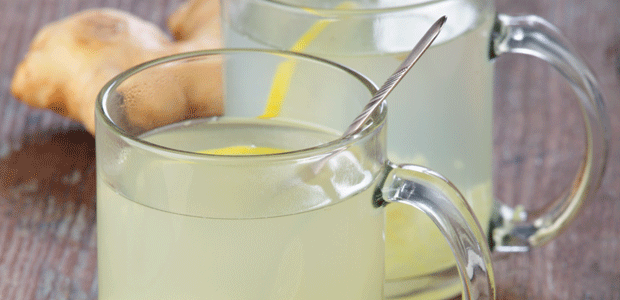Advertisement
Flu Blues and Crummy Colds
Naturopathic treatments

With the ongoing concern surrounding the H1N1 virus, the importance of boosting our immune systems to fight off infection has never been more clear. Beating stress and supporting our health will help us stay strong through the rest of the flu season.
Colds, flus, and stress
It’s no coincidence that we often get sick when we’re at our busiest, when we find ourselves saying, “There’s no way I can get sick right now.”
Under stress, our adrenal glands, tiny but vital structures that sit atop our kidneys, work overtime making cortisol. In the past, this hormone helped us gear up to run from bears and tigers; today, it’s triggered by hectic schedules and financial worries.
While cortisol undoubtedly saved many early humans from certain death, this protective hormone also suppresses our immune systems, ironically leaving us open to attacks by microbes.
Reducing stress levels can directly affect the cells of the immune system, while botanicals such as Schisandra chinensis, Eleutherococcus senticosus, and Rhodiola rosea assist whole-body stress management, contributing indirectly to immune function. Better handling of our daily worries may be one of our smartest strategies for staying healthy.
Other basic yet essential factors in immune vitality include getting enough sleep at night, every night, and eating nutrient-rich, unprocessed foods. Sleep and food are the fuel of our bodies and our immune systems; if we don’t have time to sleep or eat well, do we have time to get sick?
|
Stress management for cold and flu prevention
|
Probiotics for protection
If immune-loving lifestyle choices aren’t enough to keep the sniffles away, probiotics and botanicals can fill in the blanks. A recent study found that children treated with probiotics had reductions in cold symptoms, absenteeism, and antibiotic prescriptions. Probiotics may not be the answer to every health problem, but fighting bad bugs with good ones makes sense.
The flu vaccine
Many people complement their natural immunity with annual influenza vaccines. Vaccination is a hotly debated issue, with supporters recommending universal vaccination and opponents claiming a link to autism. Potential risks and benefits must be considered to make the best decision for you and your family.
Influenza can be life-threatening for the young, the elderly, or for people with organ disease and immune deficiency. Complications of the flu can include bronchitis, pneumonia, and even death. As the illness itself likely poses more risk to these individuals than the shot, vaccination can be life-saving.
For healthy individuals, the benefits of vaccination are less impressive. The vaccines have some risk of failure, being manufactured annually using the three viral strains that are predicted to be most common the following season.
In the past, strains causing illness have been absent from that year’s vaccine. And although unlikely, adverse effects—including Guillain-Barr?yndrome, a neurological condition—have been reported. While vaccination can be life-saving to some, its benefits may be less apparent for those with strong immune systems.
Let the games begin!
Despite your immune-boosting efforts, your resources may be temporarily overwhelmed, leaving you feeling under the weather. Don’t give up: you can still fend off the intruders!
Vitamin C can shorten the length of a cold, but it must be consumed regularly to gain these helpful effects. Echinacea spp. tincture should always be in your cupboard (barring allergy), whether alone or in combination with other immune enhancers such as Capsicum annuum and antimicrobials such as Hydrastis canadensis. Reduce all forms of sugar in your diet, including fruit juice, to prevent immune suppression.
|
Warming socks for immune stimulation
|
Hydrotherapy can be very helpful, including the somewhat counterintuitive warming sock treatment (see right).
Alternating hot and cold water in the shower, or hot saunas and cold showers, can also help fight infection, but be sure to end with cold and towel dry briskly. Keep exercising as long as it feels good.
Batten down the hatches …
Once you’re sure you’re sick, sleep and self-care must top your priority list, even if it means taking some time away from work. Your colleagues will appreciate you keeping your illness to yourself! Keep up with the immune-boosting treatments above, and take care of your symptoms:
- Steam inhalations with thyme or eucalyptus essential oil are both relaxing and congestion-busting. These antimicrobial oils can even be added to some humidifiers.
- If you can breathe through your nose at all, a warm saline lavage helps clear the nasal passages.
- Treat your throat with warm saltwater gargles, zinc-containing lozenges, and freshly crushed raw garlic in honey.
- As your grandmother probably told you, drink plenty of fluids, but include sage or ginger tea in your repertoire.
Most colds and flus can be treated at home, but if you develop difficulty breathing, a severe headache or stiff neck, or if you start feeling confused and disoriented, head to the hospital.
See your ND or MD if you are frequently ill or if you have pain or fullness in your ear(s) after a cold. Although antibiotics are ineffective for colds or flus, they may be helpful for other conditions that can follow these illnesses, such as bronchitis or pneumonia.
While there may not be a cure for colds or flus, we are far from powerless in the face of these infections. Managing our stress levels, supporting our immune systems, and respecting the needs of our bodies during illnesses can go a long way toward minimizing their impact on our lives.
|
Immune-boosting supplements Choose these supplements to fortify your immune system against colds and flu:
|
|
Change of Season Soup Older, traditional methods of immune stimulation include the Change of Season Soup, commonly used in traditional Chinese medicine (TCM). The roots of Codonopsis pilosula, Astragalus membranaceus, and Dioscorea villosa are combined with Lycium chinense berries in a broth, to be taken daily in the spring and fall. The broth can also be used as a base for soup recipes. Adding medicinal mushrooms such as Ganoderma lucidum and combining with acupuncture is said to heighten the immune effect. Botanical tinctures made with these ingredients may help support health through temperature changes. To make the soup, add equal parts of each herb (2 to 3 oz/57 to 85 g) to a large pot filled with water. With lid on, bring to boil and simmer for 4 to 6 hours,adding more water if necessary. Remove herbs with slotted spoon and allow soup to cool. |





